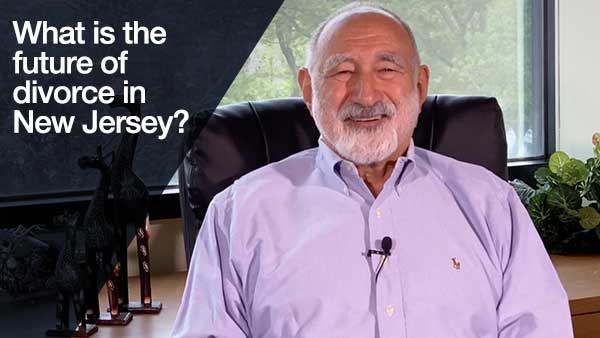NJ Divorce Mediation – A Non-Binding Process
Divorce and family law mediation involves parties in a family law dispute retaining a neutral & trained mediator to serve as a facilitator to assist them in reaching a settlement of their disputes in a safe and amicable setting. Parties (divorcing couples and others) meet together with the mediator, often on a weekly or bi-weekly basis. During mediation sessions, the parties negotiate directly with one another in the presence of the mediator who facilitates the discussions and negotiations, without imposing his/her opinions on the parties or advocating for either. The divorce mediator keeps the parties focused on the issues being discussed and makes sure they address all the issues which require resolution in their divorce or other family law dispute. Experts or other professionals may be involved in mediation, such as forensic accountants, real estate appraisers, psychologists who serve as custody and parenting-time experts, or others as are necessary and appropriate. The mediators at BorgerMatez allow attorneys to participate in mediation sessions. In appropriate situations, a coach may also be involved outside the mediation sessions to assist the parties as they navigate through the emotional turmoil and devastation of divorce or other family law disputes.
Although many mediators are attorneys with family law experience, the mediator does not represent either spouse, should not give any legal advice to the parties, and cannot make decisions for the parties when they themselves cannot reach an agreement but may make suggestions from experience for the parties to consider. It is recommended that the parties meet with individual attorneys to gain an understanding of New Jersey law as it pertains to their specific situation. In NJ divorce mediation, the parties are not bound by the law but can fashion their own settlement terms without regard to what a judge might impose upon them based on the law after trial. This gives the parties the freedom to create an agreement that meets their particular needs and the needs of the entire family, free from restraints of the law. The parties in mediation have all the power to reach a settlement and it is what they believe and determine to be fair and reasonable that matters, not what the mediator believes to be fair and reasonable.
THE NJ DIVORCE MEDIATION PROCESS
If the parties reach an agreement through mediation, either on all or some issues, the mediator will draft a memorandum of understanding or settlement agreement which memorializes the settlement terms. The parties are encouraged to have independent attorneys draft or review the agreement on their behalf. Mediators cannot represent either party in court, and, therefore, cannot file a complaint for divorce on behalf of either or both parties.
Mediation may not be an appropriate means of dispute resolution if there is an imbalance of negotiating power between the parties, where there are psychological issues with one or both parties, subtle intimidation by one against the other, where there has been as history of domestic abuse, or for other disqualifying reasons.
Mediation is an excellent means of resolving disputes in most situations and can be far less expensive than the traditional litigation model. It can help the parties maintain an amicable relationship, craft a resolution that is best for their entire family, does not only address the present circumstances (which is all the court can do), but also looks forward and addresses the future. Statistics show that parties who mediate spend less money on their divorce, feel vested in the settlement, are far less likely to engage in litigation in the future, and enjoy a healthier relationship.








